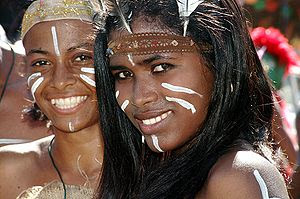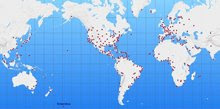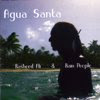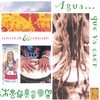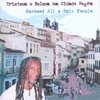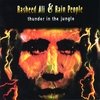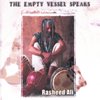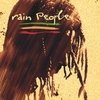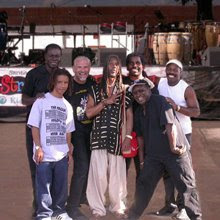 |
| The animated feature: "Chico & Rita" is fantastic! |
If you haven't heard of the animated Cuban feature: "Chico & Rita" you need to go out and see it by any means necessary! It has to be the most incredible work of art I've seen in quite some time. I'm not sure how many people know about this indie film but it resonates in the same way "Black Orpheus" ("Orfeo Negro") still resonates for me.
"Chico & Rita" is a subtle slither of Afro-Caribbean culture captured on film, a chance for those of us of the African Diaspora to see ourselves portrayed lovingly as cartoon characters. How cool is that? Ironically, it embodies roughly the same time period as "Black Orpheus", which was released in 1954.
"Chico & Rita" presents a window to a long-ago, pre-revolutionary Cuba. It is so rich in the subtleties of Afro-Caribbean culture that you forget you are watching an animated, cartoon reality. I cannot say that I've ever seen anything quite like this film, I've instantly installed this it among my All-Time Favorites.
Like "Black Orpheus", it is the power and presence of the music that carries this film deep into your psyche. Identical to "Black Orpheus" in that it is a love story that features a musician as the central character. In this case, "Chico & Rita" goes one step further since Chico is a pianist-composer and Rita is an evocative singer and his muse. Go see this film or buy it, you will find yourself falling in love with these richly tinted brown cartoon lovers.
intro: Quem me Guia / Almir Guineto
Set one:
1. A Linguagem do Amor / Rasheed Ali & Rain People / Tristeza e Beleza na Cidade Negra
2. Camina y Ven / Celina Gonzalez
3. I Faram Gami I Faram / Mulatu Astatke / Mulatu Steps Ahead
Set two:
1. llego el Sabor / Oscar D'Leon Y Jose "El Canario" Alberto / Exitos Eternos
2. Sin Cadena / L'Essentiel Faudel / Faudel w/ Yuri Buenaventura
3. N'Zambi / Andres Mingas / Telling Stories to the Sea
Set three:
1. Radio Belize / Deep Forest (Eric Mouquet & Michel Sanchez) / Comparsa
2. Khaled / Alech Taadi / N'ssi N'ssi
3. African Woman / Baaba Maal / Firin' In Fouta
Set four:
1. Epelo / Papa Wemba / Molokai
2. Vuela la Paloma / Conjunto Rumbavana
3. Santa Massa Chegou / DJ Dolores e Santa Massa / Contraditorio
4. Sabu Yerkoy / Ali Farka Toure & Toumani Diabate / Ali & Toumani

"Chico & Rita" Official Site.




